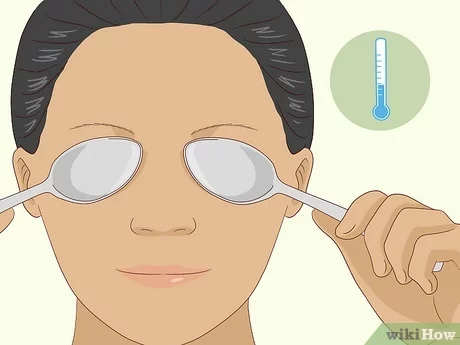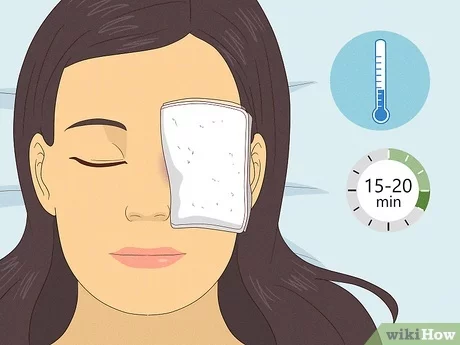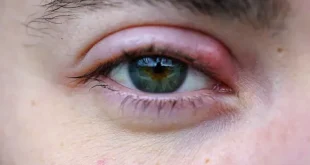Swollen eyelids can be a frustrating and uncomfortable issue, often caused by various factors such as allergies, infections, or even simple fatigue. While occasional swelling may not be a serious concern, persistent or severe swelling could indicate an underlying problem that needs attention. This article will discuss the causes of swollen eyelids, effective prevention strategies, and when to seek medical help.
Understanding Swollen Eyelids
What Causes Eyelid Swelling?
Swollen eyelids can result from numerous factors, including:
- Allergies: Pollen, dust, pet dander, and other allergens can trigger inflammation, leading to swelling.
- Infections: Conditions like conjunctivitis (pink eye) or blepharitis (inflammation of the eyelid) can cause swelling and discomfort.
- Injury: Trauma or irritation to the eye area can result in localized swelling.
- Fluid Retention: Factors such as sleep position, salt intake, or hormonal changes can lead to temporary swelling.
- Skin Conditions: Eczema or dermatitis around the eyes can also contribute to swelling.
Common Symptoms
In addition to swollen eyelids, you may experience symptoms like:
- Redness
- Itching
- Pain or tenderness
- Discharge from the eye
- Light sensitivity

Effective Prevention Strategies
1. Maintain Good Hygiene
Keeping the eye area clean is crucial for preventing infections and irritations that can lead to swelling. Here are some tips:
- Wash Your Hands: Always wash your hands before touching your face or eyes. This helps prevent the transfer of bacteria and allergens.
- Use Clean Towels: Avoid using dirty towels around your eyes, as they can harbor bacteria.
- Remove Makeup: If you wear makeup, ensure you remove it thoroughly before bed to prevent irritation.
2. Manage Allergies
If you have known allergies, taking steps to manage them can significantly reduce the likelihood of swollen eyelids.
- Identify Triggers: Keep a diary to track when your symptoms occur. This can help you identify and avoid allergens.
- Use Antihistamines: Over-the-counter antihistamines can help alleviate allergy symptoms, including swelling.
- Keep Windows Closed: During high pollen seasons, keep your windows closed to limit exposure to allergens.
3. Avoid Eye Irritants
Many everyday substances can irritate your eyes and contribute to swelling. Here’s how to minimize exposure:
- Limit Screen Time: Prolonged screen time can lead to eye strain and discomfort. Use the 20-20-20 rule: every 20 minutes, look at something 20 feet away for 20 seconds.
- Use Hypoallergenic Products: Choose skincare and makeup products that are labeled as hypoallergenic to reduce irritation.
- Stay Away from Smoke: Avoid exposure to tobacco smoke or other environmental pollutants that can irritate your eyes.
4. Stay Hydrated
Proper hydration is essential for overall health, including eye health. Drinking enough water can help prevent fluid retention and swelling. Here are some tips:
- Drink Plenty of Water: Aim for at least eight 8-ounce glasses of water a day. This can vary depending on your activity level and climate.
- Eat a Balanced Diet: Incorporate foods rich in antioxidants, vitamins, and minerals, such as leafy greens, fruits, and nuts. Omega-3 fatty acids found in fish can also promote eye health.
5. Manage Your Sleep
Sleep plays a crucial role in preventing eye-related issues. Lack of sleep can lead to fluid retention and puffiness around the eyes.
- Get Enough Sleep: Aim for 7-9 hours of quality sleep each night. Create a bedtime routine that helps you wind down and relax.
- Sleep with Your Head Elevated: Use an extra pillow or two to elevate your head while sleeping. This can help reduce fluid buildup around the eyes.

6. Apply Cold Compresses
Cold compresses can provide immediate relief for swelling and help prevent further inflammation.
- Use a Clean Cloth: Soak a clean washcloth in cold water or wrap ice cubes in a cloth.
- Apply for 10-15 Minutes: Gently place the compress over your closed eyelids. This can help constrict blood vessels and reduce swelling.
7. Be Mindful of Your Diet
What you eat can influence inflammation and fluid retention in your body, including your eyelids.
- Reduce Salt Intake: Excess sodium can lead to fluid retention. Try to limit processed foods high in salt.
- Increase Potassium-Rich Foods: Foods like bananas, sweet potatoes, and spinach can help balance sodium levels and reduce swelling.
When to Seek Medical Attention
Persistent Symptoms
If your eyelid swelling persists for more than a couple of days, or if you experience additional symptoms such as:
- Severe pain
- Vision changes
- Discharge or crusting
- Increased redness
It’s important to consult an eye care professional. They can evaluate your condition and recommend appropriate treatments.
Potentially Serious Conditions
In some cases, swollen eyelids may be a sign of a more serious condition, such as:
- Orbital Cellulitis: A severe infection around the eye that can cause swelling and may require immediate medical treatment.
- Allergic Reactions: Severe allergic reactions can cause significant swelling and may require emergency care.
Home Remedies for Swollen Eyelids
1. Cucumber Slices
Cucumbers have anti-inflammatory properties and can help reduce swelling. Simply slice a chilled cucumber and place the slices over your closed eyelids for 10-15 minutes.
2. Green Tea Bags
Green tea contains antioxidants that can help reduce inflammation. Steep two green tea bags in hot water, let them cool, and then place them over your eyes for about 15 minutes.
3. Aloe Vera Gel
Aloe vera is known for its soothing properties. Applying pure aloe vera gel to the eyelid can help reduce irritation and swelling.
4. Cold Milk
Soaking cotton pads in cold milk and placing them over your eyes can help soothe and reduce swelling. The fats in milk can provide a cooling effect.
Conclusion
Preventing swollen eyelids is largely about maintaining good eye hygiene, managing allergies, and making healthy lifestyle choices. By following the tips outlined in this article, you can significantly reduce your risk of experiencing swollen eyelids. If swelling persists or worsens, don’t hesitate to seek medical attention for proper diagnosis and treatment. Taking care of your eyes today can lead to better vision and overall well-being in the long run.
